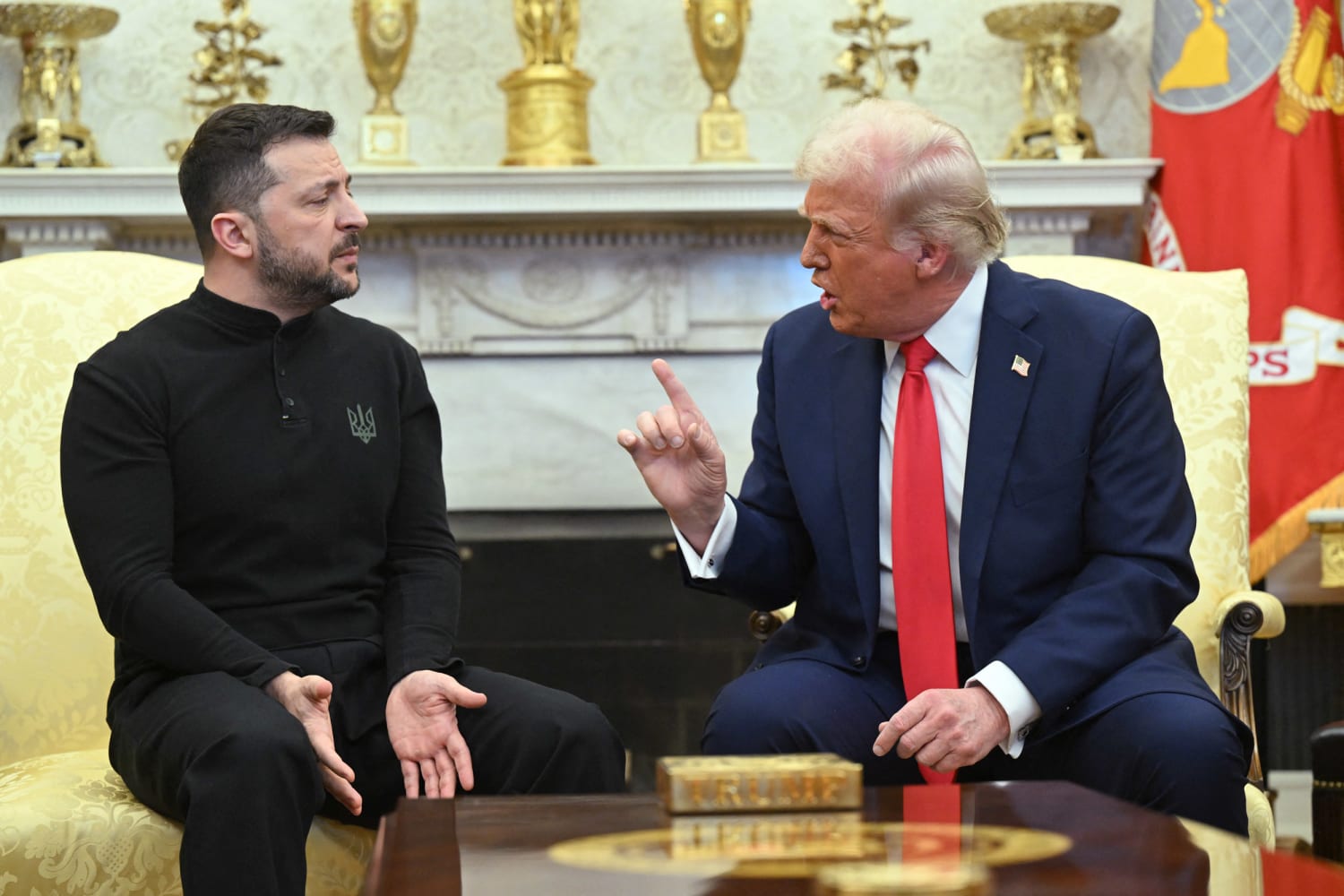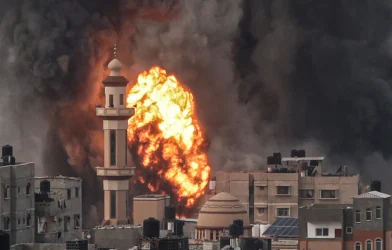Introduction
Ukrainian President Volodymyr Zelensky has unequivocally rejected former U.S. President Donald Trump’s assertion that he could end the Russia-Ukraine war “within 24 hours” if re-elected. The dismissal underscores deepening tensions over geopolitical strategies to resolve the 20-month conflict, with Zelensky stressing the complexity of the war and the dangers of oversimplified solutions. This article unpacks the exchange, its implications for international diplomacy, and the broader stakes for Ukraine’s sovereignty.
Key Highlights
- Trump’s Claim: During a campaign rally, Trump reiterated his belief that personal rapport with Putin and leverage over U.S. aid could force a rapid ceasefire.
- Zelensky’s Response: “You cannot end a war fought on principles with a handshake. Real peace requires justice, not just deadlines,” the Ukrainian leader stated.
- Global Reactions: NATO allies and analysts warn that rushed negotiations risk legitimizing Russian territorial gains.
Context: The Stalemate and Stakes
- Military Dynamics: Ukraine’s counteroffensive has made incremental gains, but Russia retains control of 18% of Ukrainian territory, including Crimea.
- U.S. Aid Debate: Trump’s remarks coincide with congressional delays over a $61 billion U.S. military aid package critical for Ukraine’s defense.
- Putin’s Calculus: The Kremlin has dismissed Trump’s claims, insisting any talks must recognize annexed regions as Russian.
Zelensky’s Counterarguments
- No Compromise on Sovereignty:
- “Peace at the cost of land is not peace—it’s occupation,” Zelensky asserted, ruling out ceding territories like Donbas or Crimea.
- Conditional Diplomacy:
- Ukraine’s 10-point peace plan demands Russian withdrawal, reparations, and accountability for war crimes—terms Moscow rejects.
- Western Unity:
- Zelensky praised bipartisan U.S. support but warned that “political gambits” risk emboldening Putin.

Trump’s Proposal: Pragmatism or Posturing?
- Leverage Theory: Trump suggests withholding U.S. aid to pressure Ukraine into concessions while using economic sanctions to coerce Russia.
- Criticism: Experts argue this approach ignores Ukraine’s agency and could fracture NATO cohesion.
- John Bolton, ex-Trump advisor: “This isn’t a real estate deal. It’s a war with global consequences.”
Implications for International Relations
- U.S.-Ukraine Trust: Zelensky’s rebuttal highlights anxieties over potential policy shifts if Trump returns to office in 2024.
- NATO’s Dilemma: European leaders, reliant on U.S. leadership, face pressure to ramp up defense spending amid U.S. political uncertainty.
- Global South Perspective: Nations like India and Pakistan watch closely, balancing economic ties with Russia and Western alliances.
Expert Analysis
- Dr. Fiona Hill, Brookings Institution: “Trump’s ‘deal-making’ rhetoric underestimates Putin’s long-game strategy. Quick fixes could freeze the conflict, not resolve it.”
- Andriy Zagorodnyuk, Ukraine’s ex-Defense Minister: “Without sustained arms flows, Ukraine’s battlefield losses will dictate terms, not diplomacy.”
What’s Next?
- U.S. Elections 2024: The fate of military aid and diplomatic strategies hinges on the election outcome.
- EU’s Role: Europe aims to approve a €50 billion aid package for Ukraine by early 2024, reducing dependency on U.S. support.
- China’s Mediation: Beijing continues positioning itself as a neutral broker, though its pro-Russia tilt remains evident.
Conclusion: The High Cost of Simplistic Solutions
Zelensky’s rejection of Trump’s claim underscores a stark reality: the Ukraine war is not a transactional dispute but a battle for democratic survival. While diplomacy remains essential, lasting peace requires unwavering international resolve, not geopolitical theatrics. For global markets and regional stability, the conflict’s trajectory will shape security paradigms for decades.
ScaleUpPakistan.com Insight
For emerging economies like Pakistan, the Ukraine war’s ripple effects—from energy prices to food security—highlight the urgency of diversifying trade partnerships and investing in strategic autonomy.










